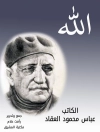In ‘The Song Celestial or Bhagavad-Gita, ‘ Edwin Arnold masterfully translates and adapts the ancient Hindu scripture, the Bhagavad-Gita, into a lyrical English poem. This work harmonizes spirituality and philosophy through Arnold’s elegant and accessible verse, offering readers a profound exploration of duty (dharma), righteousness, and the interplay between the material and spiritual realms. Set against the backdrop of the epic Mahabharata, Arnold elucidates the timeless teachings of Krishna to Arjuna, presenting profound existential questions with clarity and depth, while maintaining the authentic essence of the original text. His literary style is both poetic and reverent, making complex ideas digestible for a Western audience, thus contextualizing Eastern philosophy within Victorian sensibilities. Edwin Arnold (1832-1904) was a British poet and novelist whose deep engagement with Eastern thought profoundly shaped his literary output. His travels in India and his fascination with its spiritual traditions inspired him to bring the wisdom of the East to Western audiences. Arnold’s background as a scholar and his role as a journalist allowed him to blend descriptive narrative with philosophical insight, reflecting a life-long pursuit of understanding the universal truths found in diverse cultures. This remarkable translation is highly recommended for readers seeking a bridge between Eastern spirituality and Western thought. ‘The Song Celestial’ not only serves as an introduction to the Bhagavad-Gita but also encourages a reflective engagement with its themes, making it an essential read for anyone interested in philosophy, spirituality, or literature.
Over de auteur
Sir Edwin Arnold (1832–1904) was an English poet and journalist, renowned for his contribution to the dissemination of Eastern philosophy and religious thought to Western audiences. Educated at King’s College, London, and University College, Oxford, Arnold developed an affinity for Asian literature and culture, which would heavily influence his literary output. His role as a propagandist for the British Empire was multifaceted; apart from being a poetry writer, he was also known for his work with ‘The Daily Telegraph’. A key figure in the popularisation of Indian scripture, Arnold’s translation of the Hindu classic ‘Bhagavad-Gita’, titled ‘The Song Celestial or Bhagavad-Gita’ (1885), remains one of his most famous works. Through his translating endeavors, Arnold presented the sacred text in a form of poetic blank verse, enabling Victorian England to engage with the philosophical and spiritual depth of Indian thought. His rendition, while capturing the essence of the original Sanskrit, exhibits Arnold’s distinct literary style, which is both lyrical and didactic. This work, along with others like ‘The Light of Asia’ (1879) about the life and teachings of the Buddha, demonstrates Arnold’s role as a cultural intermediary and his contribution to the cross-pollination of East-West literary traditions. His scholarly and poetic approach to translation has left an indelible mark on the interpretation of Eastern philosophical texts in the English-speaking world.












